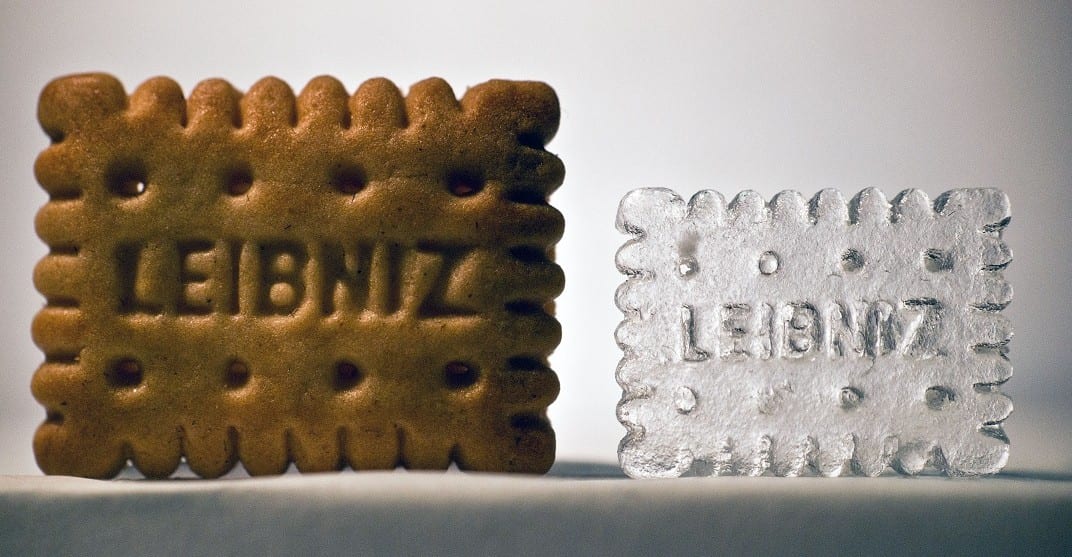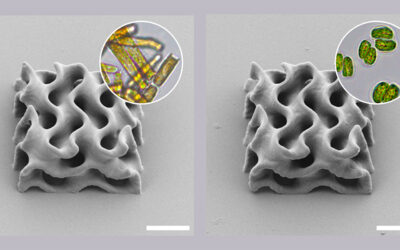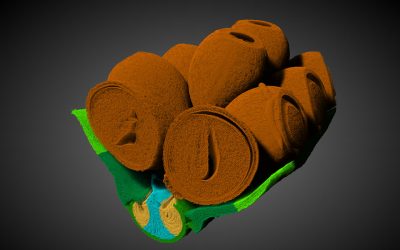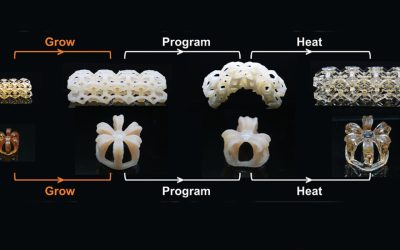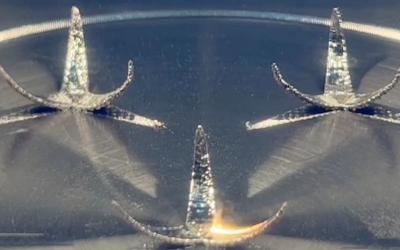(Copyright Karlsruhe Institute of Technology, used here with permission.)
Glass is an important material with many outstanding properties for a wide range of applications in science, industry and society. The structuring of glass, however, usually requires wet chemical etching using hazardous hydrofluoric acid, making it difficult to process, a major disadvantage of glass.
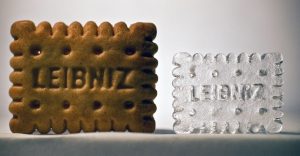
Bastian E. Rapp, Frederik Kotz and co-workers at Karlsruhe Institute of Technology (Eggenstein-Leopoldshafen, Germany) have now introduced “Liquid Glass” (LiqGlass), a viscous free-flowing, photocurable nanocomposite containing amorphous silica which can be structured by room-temperature replication using soft molds made from polydimethylsiloxane (PDMS). The cured LiqGlass is then converted to dense high-quality solid glass via thermal debinding and sintering.
The resulting glass is chemically and physically identical to commercial fused silica glass. Using LiqGlass it is possible to convert arbitrary physical objects made from almost any material with feature sizes in the range of tens of micrometers and roughness of a few nanometers into glass rapidly and conveniently. Lamination of cured LiqGlass allows the creation of complex physical structures with e.g. closed cavities or microfluidic channels which is an important step towards establishing glass as a material in rapid prototyping and additive manufacturing.

